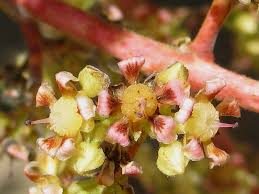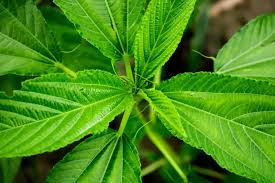The Mango Stamens: Economic Importance, Uses, and By-Products
Mango stamens are integral parts of the reproductive system of the mango tree (Mangifera indica), playing a crucial role in its reproduction and fruit production. Stamens are the male reproductive organs of flowering plants, consisting of a filament and an anther. In mango flowers, the stamens are typically numerous and surround the central pistil, which contains the female reproductive organs.
Each stamen consists of a slender filament that supports the anther at its tip. The anther is where pollen grains are produced through a process called microsporogenesis. These pollen grains contain the male gametes necessary for fertilization. In mango flowers, the anthers are small, oval-shaped structures that release pollen into the air or onto visiting pollinators such as bees, butterflies, or other insects.
The presence and functionality of mango stamens are crucial for successful pollination and subsequent fruit set. Pollination occurs when pollen grains from the anthers are transferred to the stigma, the receptive part of the pistil. This process can be facilitated by wind (wind pollination) or by animals (animal pollination), depending on the species and environmental conditions.
Economically, mango stamens contribute directly to fruit production. Pollination is necessary for the development of mango fruits, which are highly valued for their sweet flavor and nutritional content. Successful pollination ensures the formation of healthy fruits that are essential for commercial cultivation and trade.
Beyond their reproductive role, mango stamens also hold cultural significance in some regions where mango trees are cultivated. Mango flowers, including their stamens, are sometimes used in traditional practices, decorations, or religious ceremonies. They may symbolize prosperity, fertility, or be used in various rituals to invoke blessings or good fortune.
Mango stamens are pivotal in the reproductive cycle of mango trees, ensuring the production of fruits through pollination. They represent not only a biological mechanism for plant reproduction but also hold cultural and economic importance in regions where mango cultivation is prevalent. Understanding the role of mango stamens underscores their contribution to agriculture, biodiversity, and cultural practices associated with mango cultivation worldwide.
The Economic Importance and Uses of Mango Stamens

1. Pollination Studies: Mango stamens are crucial for research in pollination and plant reproduction, aiding agricultural scientists in understanding crop yields.
2. Herbal Medicine: In traditional medicine, mango stamens are used for their purported health benefits, including anti-inflammatory and antimicrobial properties.
3. Nutritional Supplements: Mango stamen extracts are used in supplements for their potential health benefits, such as boosting immunity and overall wellness.
4. Food Flavoring: The pollen from mango stamens can be used as a natural flavoring agent in culinary applications.
5. Perfumes: The natural fragrance of mango stamens is used in creating exotic and unique perfume blends.
6. Cosmetic Products: Extracts from mango stamens are added to skincare products for their potential antioxidant properties.
7. Essential Oils: Mango stamen oil is used in aromatherapy and in making scented products like candles and diffusers.
8. Tea Blends: Dried mango stamens can be used in herbal tea blends, providing a mild and pleasant flavor.
9. Natural Dyes: The pigments in mango stamens can be used to create natural dyes for textiles and art.
10. Fertilizers: After extraction, the remaining organic material from mango stamens can be used as a natural fertilizer.
11. Bioactive Compounds: Mango stamens contain bioactive compounds that are studied for potential pharmaceutical applications.
12. Veterinary Medicine: Mango stamen extracts are explored for use in natural treatments for animals.
13. Anti-allergy Products: Certain compounds in mango stamens may help in formulating products for allergy relief.
14. Insect Repellents: Extracts from mango stamens are used in natural insect repellent formulations.
15. Biodegradable Packaging: The fibrous nature of mango stamens makes them suitable for developing biodegradable packaging materials.
16. Crafting Materials: Dried mango stamens can be used in crafting and floral arrangements for decorative purposes.
17. Soil Improvement: When composted, mango stamens enrich the soil, improving its fertility and structure.
18. Biotechnological Research: Mango stamens are studied in biotechnology for genetic research and crop improvement.
Read Also: 3 Health Benefits of Slippery Elm (Ulmus fulva)
The Products and By-products That Can Be Derived From Mango Stamens

1. Mango Stamen Tea: Dried stamens are steeped in hot water to make a mild herbal tea.
2. Essential Oil: Extracting oil from mango stamens for use in aromatherapy and perfumery.
3. Natural Dye: Processing the pigments in mango stamens to create natural dyes for fabrics and art.
4. Skincare Products: Using extracts in creams, lotions, and serums for their potential skin benefits.
5. Herbal Supplements: Encapsulating stamen extracts for dietary supplements.
6. Perfumes: Incorporating the natural fragrance of mango stamens into unique perfume blends.
7. Scented Candles: Infusing candles with mango stamen essential oil for a natural aroma.
8. Aromatherapy Diffusers: Using essential oil from mango stamens in diffusers to promote relaxation.
9. Food Flavoring: Using mango stamen pollen as a natural flavor enhancer in culinary dishes.
10. Insect Repellents: Formulating natural insect repellents with mango stamen extracts.
11. Veterinary Products: Creating natural treatments for pets using mango stamen extracts.
12. Anti-allergy Products: Developing products that utilize compounds in mango stamens for allergy relief.
13. Fertilizers: Composting mango stamen residues to create natural fertilizers.
14. Bioactive Compounds: Extracting bioactive compounds for pharmaceutical research.
15. Biodegradable Packaging: Using the fibrous material from stamens in creating eco-friendly packaging.
16. Craft Materials: Utilizing dried mango stamens in crafts and floral arrangements.
17. Soil Enrichment: Adding composted stamen material to soil for improved fertility.
Read Also: 6 Health Benefits of Oregano (Origanum vulgare)
Frequently Asked Questions (FAQ’s) About Mango Stamens

1. What are mango stamens?
Mango stamens are the male reproductive parts of the mango flower, responsible for producing pollen.
2. How are mango stamens used in cooking?
Mango stamen pollen can be used as a natural flavoring agent in various dishes.
3. Are mango stamens edible?
Yes, the pollen from mango stamens is edible and used in culinary applications.
4. Can mango stamens be used in skincare?
Yes, extracts from mango stamens are used in skincare products for their potential antioxidant properties.
5. What are the health benefits of mango stamens?
Mango stamens contain bioactive compounds that may offer health benefits such as anti-inflammatory and antimicrobial effects.
6. How do you make mango stamen tea?
Steep dried mango stamens in hot water for a few minutes to make a mild herbal tea.
7. Are there any traditional medicinal uses for mango stamens?
Yes, they are used in traditional medicine for their purported health benefits.
8. Can mango stamens be used in perfumes?
Yes, their natural fragrance makes them suitable for creating unique perfume blends.
9. How are mango stamens processed for use in products?
They can be dried, distilled, or extracted depending on the intended product.
10. Where can I buy mango stamens?
They can be found at specialty food stores, online retailers, and herbal shops.
Read Also: Practical Steps to Covert Paper Wastes into New Paper Products









